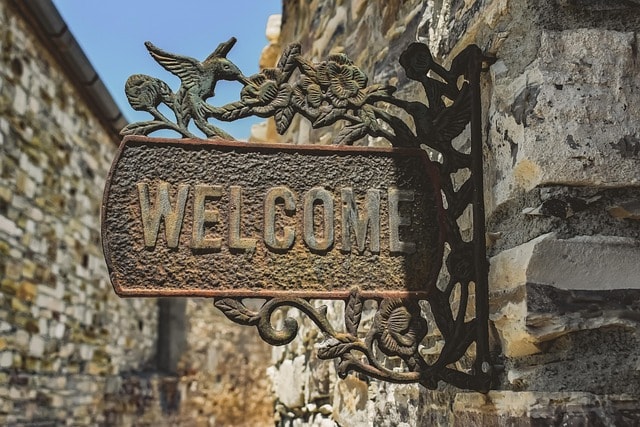IntroductionThe hospitality industry thrives on creating unforgettable experiences. However, in today’s digital-first world, even the most exceptional guest experiences can go unnoticed without robust marketing strategies within a hospitality business plan. This 3000-word guide dives deep into the essentials of hospitality marketing, exploring cutting-edge trends, effective digital marketing techniques, and the critical role of global media presence. Whether you’re a hotel owner, a hospitality management professional, or a marketer, this article equips you with actionable insights to elevate your hotel marketing efforts, drive direct bookings, and position your brand in the spotlight of the worldwide press.
Section 1: Understanding the Hospitality Industry and Its Marketing Challenges

The hospitality industry is a dynamic sector encompassing hotels, restaurants, travel agencies, and event services. With rising competition, hospitality businesses must adopt innovative marketing strategies to stand out. A hotel’s marketing efforts are centered around attracting potential guests through online engagement and enhancing brand awareness. Key challenges include:
Target audience fragmentation due to diverse traveler preferences.
The need for personalized marketing to cater to individual guest expectations.
Balancing revenue management with promotional campaigns.
For example, hotel marketing often struggles with shifting traveler behaviors, such as the preference for direct bookings over third-party platforms. A study by Hospitality Net reveals that 68% of travelers now prioritize booking directly to access exclusive perks.
1.1 What is Hospitality Marketing?
Hospitality marketing is a specialized form of marketing that focuses on promoting and selling hospitality services, such as accommodations, food and beverage, and tourism-related products. It involves understanding the needs and preferences of target audiences and developing marketing strategies to meet those needs. The primary goal of hospitality marketing is to create a positive experience for customers, build brand loyalty, and ultimately drive revenue for hospitality businesses. By leveraging insights into customer behavior and preferences, hospitality marketing aims to deliver personalized and memorable guest experiences that encourage repeat visits and positive reviews.
1.2 Hospitality Marketing Essentials

Effective hospitality marketing requires a deep understanding of the target audience, their needs, and preferences. This involves developing a unique value proposition that sets the business apart from competitors. Key essentials of hospitality marketing include:
Understanding the Target Audience: Analyzing demographics, behavior, and preferences to tailor marketing efforts.
Unique Value Proposition: Crafting a compelling value proposition that highlights what makes the business unique.
Consistent Branding: Ensuring a consistent brand image and message across all marketing channels.
Digital Marketing Techniques: Utilizing search engine optimization, social media marketing, and other digital strategies to reach and engage customers.
Exceptional Customer Service: Focusing on providing outstanding customer service and experiences to foster loyalty and positive word-of-mouth.
By mastering these essentials, hospitality businesses can effectively attract and retain customers, driving long-term success.
1.3 Key Characteristics of Hospitality Marketing
Hospitality marketing has several key characteristics that distinguish it from other forms of marketing:
Intangibility: Hospitality services are intangible, meaning they cannot be touched or seen before purchase. This requires marketers to emphasize the experiential aspects and benefits of the service.
Inseparability: Hospitality services are often consumed simultaneously with the production process. This means the quality of service delivery is crucial and directly impacts customer satisfaction.
Perishability: Hospitality services are perishable, meaning they cannot be stored for later use. This necessitates effective demand management and promotional strategies to maximize occupancy and revenue.
Variability: Hospitality services can be customized to meet the needs of individual guests. This allows for personalized marketing and tailored guest experiences that enhance satisfaction and loyalty.
Understanding these characteristics helps hospitality marketers develop strategies that address the unique challenges and opportunities in the industry.
1.4 7Ps of Hospitality Marketing
The 7Ps of hospitality marketing are a framework for understanding the key elements of hospitality marketing. They include:
Product: The hospitality service or product being marketed, such as hotel rooms, dining experiences, or tour packages.
Price: The pricing strategy for the hospitality service or product, which should reflect its value and competitive positioning.
Place: The location where the hospitality service or product is offered, including both physical locations and online presence.
Promotion: The marketing and promotional efforts used to promote the hospitality service or product, such as advertising, public relations, and sales promotions.
People: The staff and employees who deliver the hospitality service or product, whose interactions with guests are critical to the overall experience.
Process: The systems and processes used to deliver the hospitality service or product, ensuring efficiency and quality.
Physical Evidence: The physical environment and amenities that support the hospitality service or product, such as the ambiance of a hotel or the presentation of a meal.
By incorporating these elements into their marketing strategy, hospitality businesses can create a comprehensive and effective approach to attracting and retaining customers.
Section 2: Core Marketing Strategies for Hospitality Success

2.1 Leveraging Digital Marketing in Hospitality
Digital marketing is crucial for a hotel’s marketing efforts to improve visibility and engagement. Key components include:
Search Engine Optimization (SEO): Optimizing website content for keywords like “effective hotel marketing strategies” or “hospitality services” improves visibility on Google.
Social Media Platforms: Instagram and TikTok are goldmines for showcasing guest experience through visuals. For instance, Marriott Hotels uses Instagram Reels to highlight luxury suites, driving engagement by 40%.
Influencer Marketing: Partnering with travel influencers amplifies reach. A single post by a macro-influencer can generate 2-4% spikes in bookings for hospitality brands.
2.2 Content Marketing for Hospitality
Content marketing is a crucial element of hospitality marketing. It involves creating and sharing valuable, relevant, and consistent content to attract and retain a clearly defined audience. Hospitality businesses can use content marketing to:
Establish Thought Leadership: By sharing expert insights and industry knowledge, businesses can position themselves as leaders in the hospitality market.
Build Brand Awareness and Loyalty: Consistent and engaging content helps build a strong brand presence and fosters customer loyalty.
Drive Website Traffic and Direct Bookings: High-quality content can attract visitors to the website, encouraging direct bookings and reducing reliance on third-party platforms.
Provide Valuable Information: Offering useful information, such as travel tips, destination guides, and service highlights, enhances the guest experience and builds trust.
By leveraging content marketing, hospitality businesses can effectively engage their audience, build their brand, and drive business growth.
2.3 Social Media Marketing for Hotels
Social media marketing is a powerful tool for hotels to connect with their target audience and build brand awareness. Hotels can use social media platforms to:
Share Updates and Promotions: Regularly posting updates, special offers, and promotions keeps the audience informed and engaged.
Engage with Customers: Responding to comments, messages, and reviews helps build a community and shows that the hotel values customer feedback.
Showcase Amenities and Services: Sharing high-quality images and videos of the hotel’s amenities and services can attract potential guests and highlight the unique aspects of the property.
Run Targeted Advertising Campaigns: Social media platforms offer advanced targeting options, allowing hotels to reach specific demographics and drive direct bookings and revenue.
By incorporating these elements into their marketing strategy, hospitality businesses can effectively promote their services and attract new customers.
2.2 Building Loyalty Through Guest-Centric Approaches

Loyalty Programs: Offering tiered rewards (e.g., free stays, upgrades) retains repeat guests. A hotel’s marketing efforts are crucial for implementing effective loyalty programs and encouraging positive reviews. Hilton Honors reported a 30% increase in member bookings after revamping their program.
Positive Reviews: Encouraging guests to leave reviews on TripAdvisor or Google My Business builds credibility. A 5-star rating can boost conversions by 2-5%.
2.3 Embracing Hospitality Marketing Trends
AI-Driven Personalization: Tools like chatbots tailor recommendations based on guest data. Adopting new trends like AI-driven personalization and sustainability marketing can significantly benefit a hospitality business.
Sustainability Marketing: Eco-conscious initiatives attract millennials and Gen Z.
Section 3: The Power of Global Media Presence
Being featured in worldwide press like Forbes, CNN Travel, or The New York Times elevates brand authority. Being featured in worldwide press can significantly enhance a hotel’s marketing efforts by boosting credibility and driving direct bookings. Benefits include:
Enhanced credibility and trust among international travelers.
Increased referral traffic to your website.
Opportunities for partnerships with global hospitality brands.
For example, the Ritz-Carlton’s coverage in Travel + Leisure drove a 15% surge in direct bookings from luxury travelers.
Section 4: Case Studies and Data-Driven Insights
Case Study 1: A boutique hotel in Bali used social media platforms and influencer marketing to achieve a 200% ROI in six months.
Case Study 2: A resort chain implemented revenue management software, increasing annual profits by 22%.
Section 5: Future-Proofing Your Strategy

Stay ahead by:
Investing in hospitality marketing trends like virtual reality tours.
Continuously optimizing digital marketing techniques and training teams in best practices are crucial for future-proofing a hotel’s marketing efforts.
Training teams in hospitality management best practices.
Continuously optimizing digital marketing techniques for algorithm updates.
ConclusionMastering marketing in the hospitality industry requires a blend of creativity, data analytics, and global outreach. By leveraging effective hotel marketing strategies, prioritizing guest experience, and securing media features, your business can dominate in this competitive landscape.
About UsWith over 500 successful cases in hospitality marketing, Vuga Media Group specializes in turning challenges into triumphs. Let us help you craft a winning strategy.
Sources
Hospitality Net: https://www.hospitalitynet.org
Travel + Leisure: https://www.travelandleisure.com
Marriott Hotels Case Study: https://news.marriott.com





